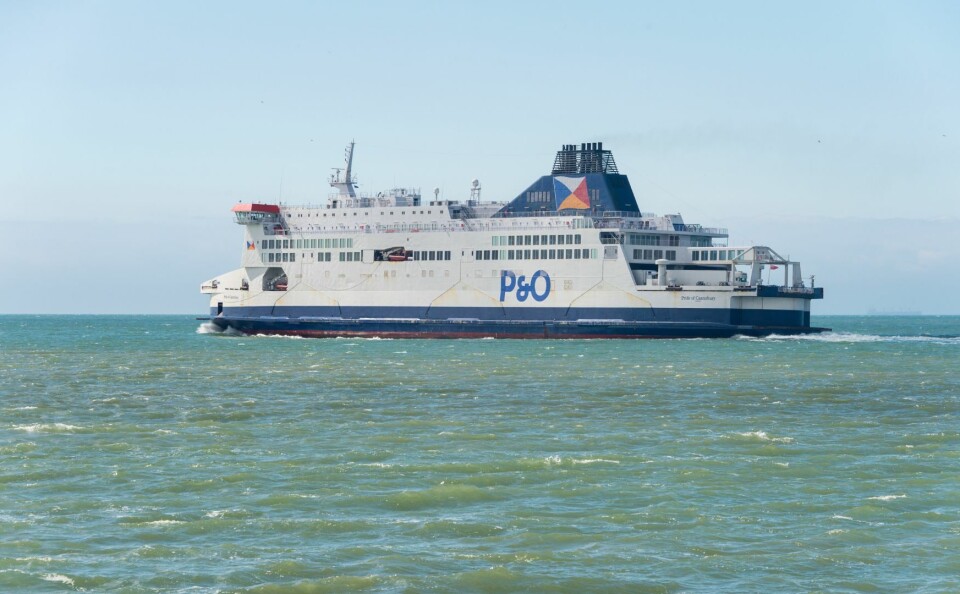-
Cars and driving: What's new in France in 2026
Including the new pollution tax on used cars, motorway toll changes and speed camera changes
-
More than a quarter of new car registrations in France are electric
EV sales hit new record in November 2025
-
Ryanair’s presence confirmed at Tours-Val de Loire airport
Bookings for summer flights to Marseille and Morocco are already open
Channel ferry crews to be better protected by new French and UK laws
But not all cross-Channel ferry companies have signed an additional voluntary charter on wages and working conditions

A new law protecting the wages and working rights of Channel ferry staff will come into force on January 1 next year.
The Le Gac law is set to impose minimum salaries on regular crossings that include a French port, plus time on shore must be at least equal to time onboard.
It follows strong criticism of P&O, which sacked 800 British crew without notice last year and replaced them with staff from countries such as India paid, in some cases, £5.15/hour.
A decree is also expected setting a maximum time on board.
Punishment including criminal fines of €7,500/employee for a first offence, then double (and prison) for a repeat offence, are planned for breaking the law.
A similar UK law, awaiting secondary legislation, is also set to take effect on January 1.
Read more: P&O sacks 800 UK crew saying action was needed to remain ‘viable’
Read more: French MPs vote to give cross-Channel ferry workers a minimum wage
French law goes further than minimum wage compliance
A spokesman for the French ferries union Feets FO, Etienne Castillo, said the combined effect should be to enforce the maximum of whichever is more favourable on ships crossing between French and UK ports.
The UK will impose the British minimum wage (£10.42), whereas the French law concerns standard workplace pay for ships according to job paygrade, not just a French minimum wage of €11.52/hour gross.
Working rules loophole closed for French-registered ships
France has also passed a decree that French-registered ships serving the British Isles or Channel Islands must be on the standard French ‘first register’ not the ‘international’ one.
Unionists say the latter is aimed at private yachts and allows firms to apply working rules and salaries based on crewmembers’ nationality. This will reportedly impose a change on Manche Isles Express, serving the Channel Islands, but for now it will not affect Brittany Ferries’ or DFDS’ Channel ferries.
It will also not affect Irish Ferries or Dubai-owned P&O, which register ships in Cyprus – this was what enabled P&O’s controversial actions last year.
Mr Castillo said the UK law will be a back-up in the case of any firm deciding, for example, to move UK crossings to Belgian ports instead. The rule on registers was also welcome, he said.
“We didn’t want the establishment of minimum rules on Channel crossings to also authorise French firms to leave the first register and join the less protective second one, saying ‘we’re going to do like the rest of them do and just follow the new cross-Channel rules’.”
The first register obliges firms to follow French workplace conventions for the sector entirely, not just rules on salary, so including social protections, such as incapacity benefits.
Additional voluntary charter signed
An additional voluntary charter, backed by the French and British governments, was signed on July 24 by four cross-Channel companies.
DFDS, Condor Ferries, Brittany Ferries and Stena pledged not to degrade wages, working conditions or employment rights of their staff in the pursuit of profits.
It is hoped the charter will not only protect workers but create a more level playing field in a competitive industry.
No UK minimum wage statement from P&O
Mr Castillo said it is impossible to say if any extra costs which might be incurred by P&O or Irish Ferries due to the new French and UK laws will be passed on to travellers.
“We hope the [Le Gac] law will be applied – it’s a good first step that could be a basis for going further – but we’re worried that the firms might appeal against the French law in the EU courts.”
During debates, the Senate removed a ban on third-time offenders’ ships from French ports. There were thought to be concerns this measure could be contested.
We asked P&O if it now pays at least UK minimum wage but it said it did not have a statement on that.
It said it will meet any requirements under national and international laws that govern the maritime sector.
Irish Ferries did not respond to our queries.
Related articles
Border changes, ferry discount, ghost station: 8 French travel updates
‘Data kiosks’ to be put at French borders for EU entry checks
























